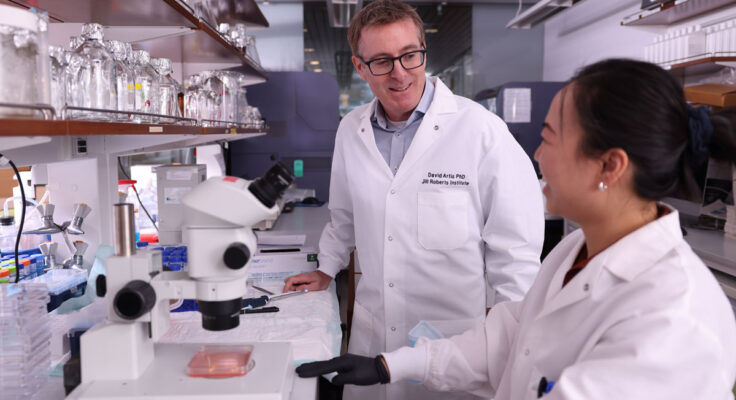The Kenneth Rainin Foundation’s Scientific Advisory Board ensures we have a variety of perspectives to guide our funding recommendations and strategies toward curing Inflammatory Bowel Disease (IBD). Its members provide scientific expertise to help us take smart risks and think creatively about supporting promising research. They also play an important role in shaping our annual Innovations Symposium.
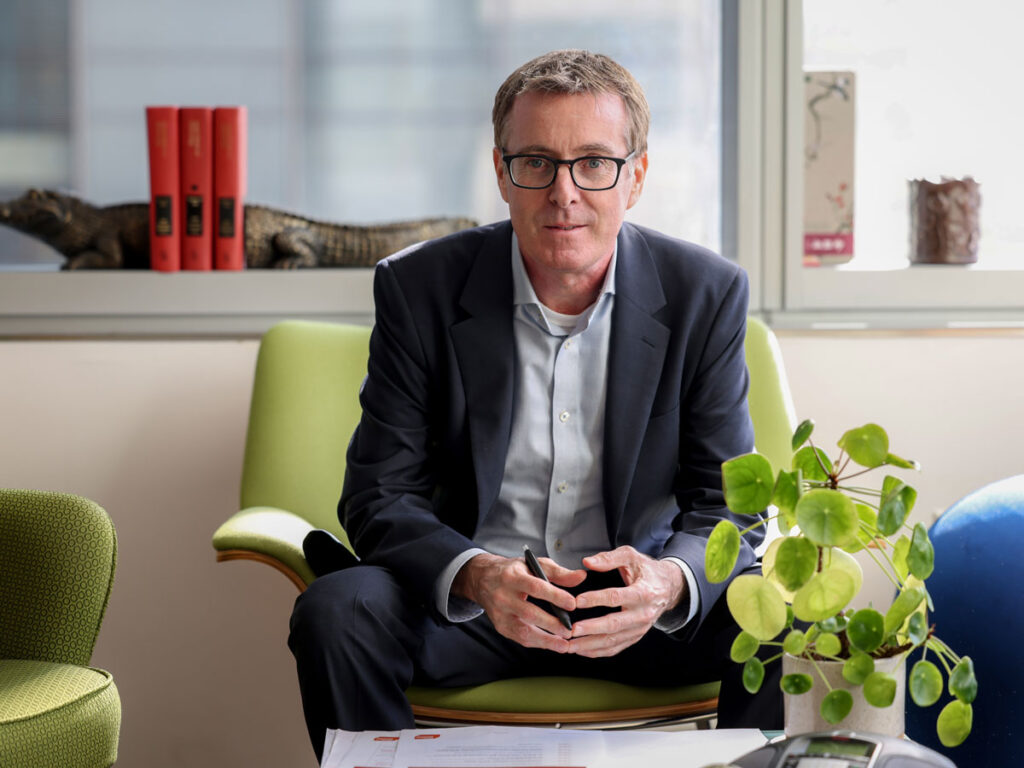
This dynamic group of researchers includes Dr. David Artis, who joined the Advisory Board in 2015. Dr. Artis is the Michael Kors Professor of Immunology, Director of the Jill Roberts Institute for IBD Research and Director of the Friedman Center for Nutrition and Inflammation at Weill Cornell Medical College in New York City. His groundbreaking research has been influential in understanding the complex interplay of biological systems affecting gut health and disease. He is a champion of scientific discovery and dialogue and bold, innovative research to improve lives.
I asked Dr. Artis about his research, his perspective on catalyzing transformative innovations in the field and his ardent commitment to collaboration. Explore highlights from our conversation below.
Your research has been seminal to advancing the understanding of IBD. What are some highlights?
I trained as an immunologist and when I started 20-plus years ago, our understanding of mucosal immunology was limited—the word microbiota didn’t even exist. But there has been a revolution in our understanding of gut health. When I started my research career, I was really interested in the single layer of epithelial cells that separates you and me from the outside world. These cells do a lot more than being a physical barrier. In the beginning, I was focused on how epithelial cells shape inflammatory and anti-inflammatory immune responses associated with IBD. Establishing a research program, my group began focusing on how these cells sense the outside world, what type of molecules they make that educate the immune system about whether the gut is healthy or damaged, and how that shapes the immune response.
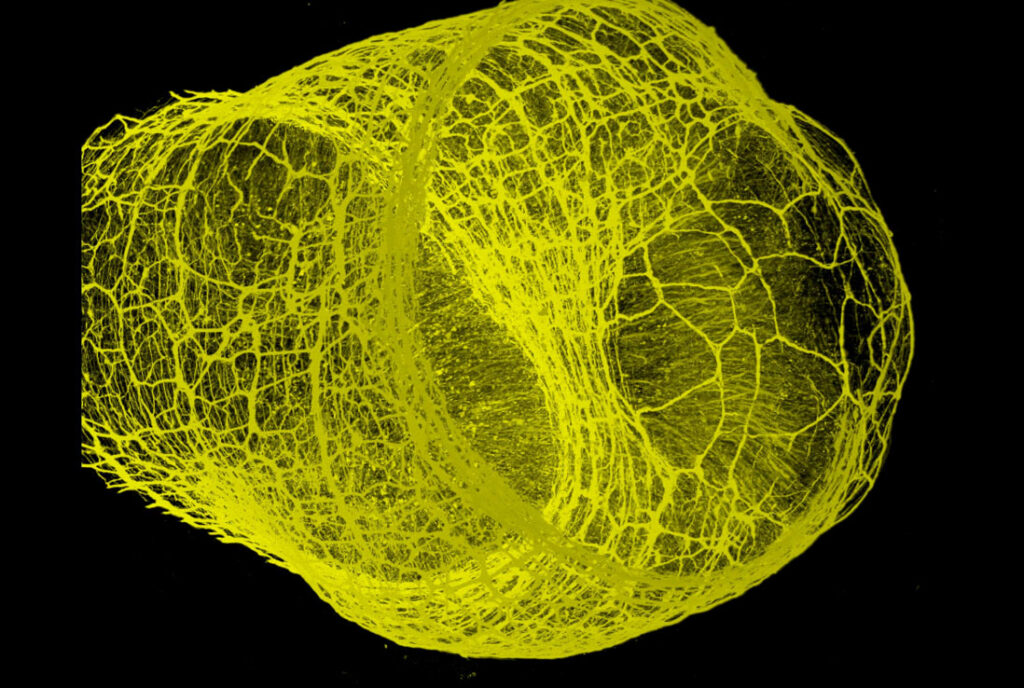
More recently, the research team has been asking how these intestinal immune responses are regulated. And we found the immune cells were very closely associated with the innervation (supply of nerves) in the gut. The nervous system and the immune system, although evolutionarily very different, are speaking to each other all the time and sharing functions of sensation, response and memory formation. And that led us to an idea that, during inflammation, patients feel pain through the nervous system and maybe the nervous system is sensing or communicating with immune cells that are reacting to a damaged epithelium. That’s when we begin to understand this biological dance occurring between the epithelium, the immune system and the nervous system.
I think the epithelium is central to all of that crosstalk in influencing gut health and disease.
Dr. David Artis
In my relatively short research career, the last two decades have afforded the community opportunities to explore the microbiota and neuronal-epithelial-immune interactions. From my own experiences, these complex questions come down to the simple question I set out to answer a few decades ago: what is the epithelium doing in the intestine? That’s what led us to the microbiota. It led us to this neuro-immune interaction. I think the epithelium is central to all of that crosstalk in influencing gut health and disease.
What is important to you in your role with the Rainin Foundation—in both grantmaking and the Innovations Symposium?
I am in awe of the Rainin Foundation’s mission to pioneer preventative and curative treatments for IBD. The Foundation’s unique place in the bigger landscape of the biomedical community is its tremendous degree of focus to understand this group of inflammatory bowel diseases. As a Scientific Advisory Board member, the most important or useful thing I think I can bring is knowledge of the science to an organization that’s passionate and dedicated to scientific discovery. I’m thrilled to be part of the group.
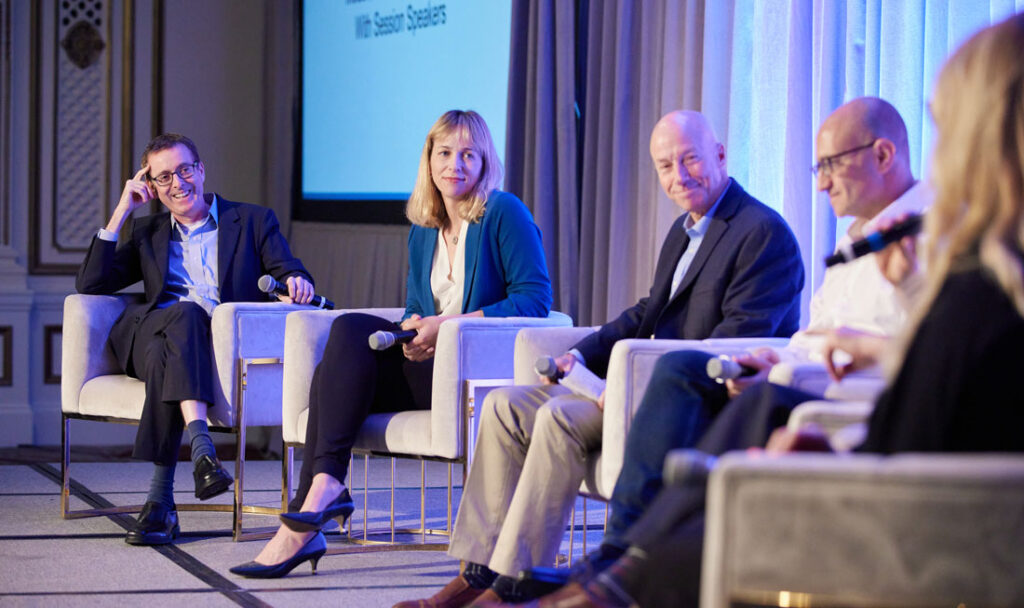
The Rainin Foundation brings that focus on IBD to life at the Innovations Symposium every year. It’s a wonderful forum and quite unusual, in my experience. It’s relatively small, so there’s a real community of basic scientists, clinicians and patients directly interacting and communicating ideas and challenges. It brings together people at different phases of their career—very senior clinicians and scientists, junior trainees and new investigators building their own programs. The Health Team does an amazing job creating a canvas for engagement and interaction. The poster sessions have an infectious energy and buzz. And I love how each panel discussion has space for real dialogue between panelists and everyone in the audience. It’s not just about the science, it’s about mentorship and building professional networks as well. It speaks to the Foundation’s commitment to bringing people together and it has a huge impact on the community.
What are your thoughts about new or emerging opportunities for the Foundation’s Health Program?
We have billions of microbiota and more immune cells and nerves in our guts than any other place in our body put together. It doesn’t make any sense as a scientist but it works, and then it doesn’t work in IBD. We still don’t know why, and various cutting-edge treatments work only for half of patients and that might be temporary. That’s simply not good enough. So how do we make the quantum leap in discovery? How do we catalyze truly innovative thinking that will bring new therapies to patients?
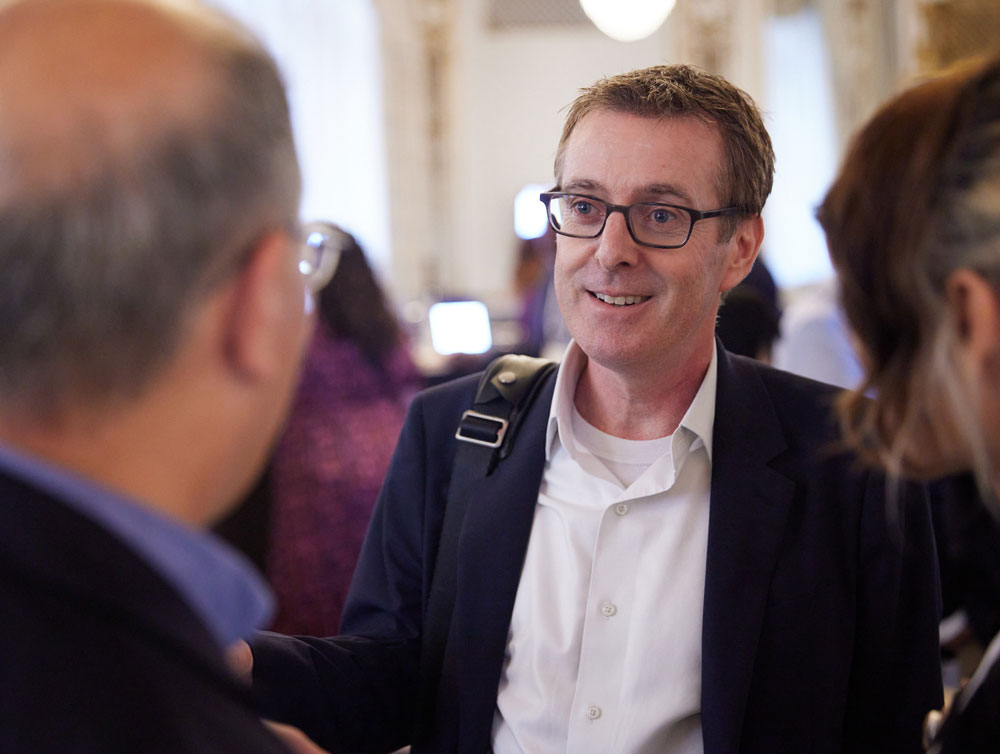
The Rainin Foundation has an opportunity to fund cutting-edge innovative discovery. It has already embraced investments in the next generation of investigators and I’m confident that will continue. But in a more strategic sense, if we want to be pioneers in discovery and innovation in IBD, we have to fund multidisciplinary teams. Bring together clinical expertise, immunologists to understand inflammation, microbiologists, engineers, computational biologists and geneticists. Bring expertise with AI technology to large, complex data sets. No individual scientist can bring all that, a team brings all that.
The Foundation does a tremendous job in identifying challenges and opportunities to support innovation in the IBD space. The challenge facing the broader scientific community is that it’s extraordinarily expensive to do cutting-edge, innovative science that traverses individual disciplines and expertise. Any foundation may have a bigger impact by funding fewer teams, more deeply. Looking forward, in addition to individual investigator awards, the Rainin Foundation could challenge the community to form multidisciplinary teams and ask each to propose something that transforms our thinking about IBD. We could offer three to five years of support to several teams and see what happens.
My vision for the next quantum leap in the Rainin Foundation supporting IBD research is to move towards fewer, larger team-based science. This is just my perspective on where the Foundation can have the biggest impact in innovation.
As you look toward the future of IBD research, what else would you like to convey?
If you’re interested in this group of diseases, reach out to the Rainin Foundation and let’s talk. I would propose to the scientists and the physicians in the community to be bold in how you approach this group of inflammatory bowel diseases. Don’t be limited by the information we know or the tendency to approach things through a very defined path. Diseases like IBD are extraordinarily complex, we know that. And IBD requires us to see that complexity through very different lenses. So be bold, be innovative.
I would propose to the scientists and the physicians in the community to be bold in how you approach this group of inflammatory bowel diseases.
Dr. David Artis
Meet the Kenneth Rainin Foundation’s Scientific Advisory Board and Health Team at our 2024 Innovations Symposium in San Francisco on July 15-16. This annual event brings together researchers, trainees and clinicians to encourage dialogue and build bridges that enhance IBD research. Learn more about the Rainin Foundation’s vision for solving IBD, areas of interest and the extraordinary scientists we support on the Rainin IBD website.
